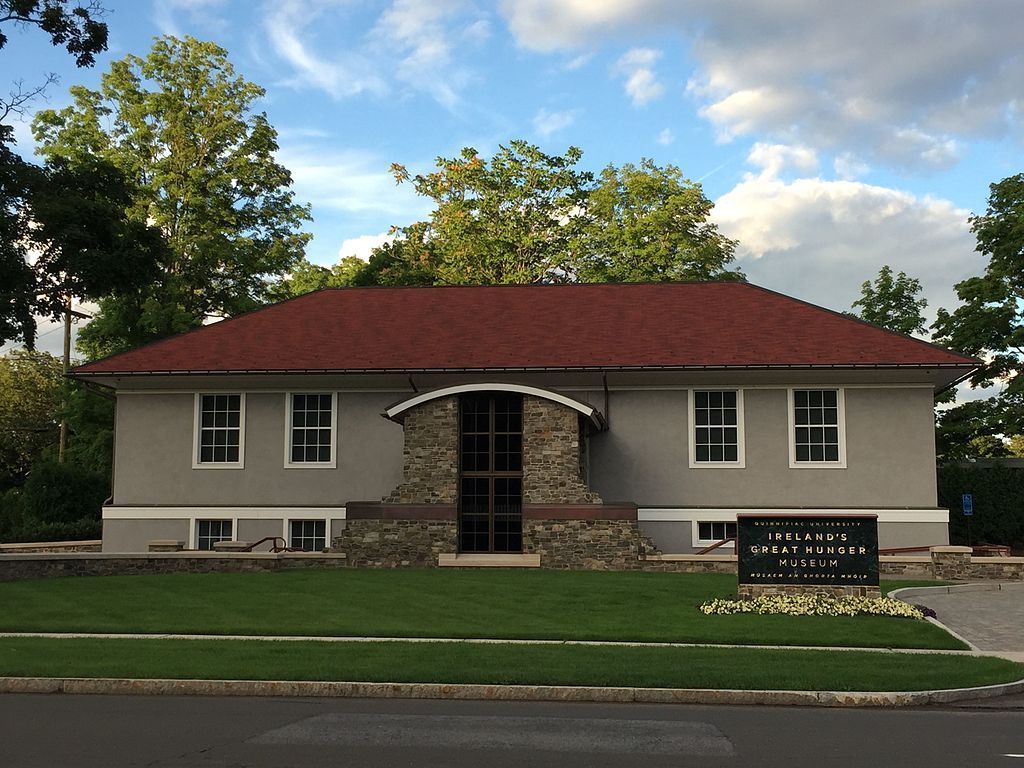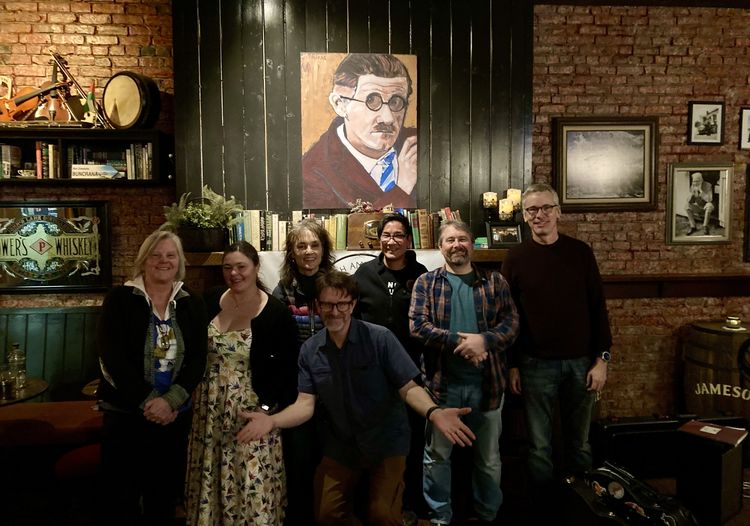A decision on the future of the Great Hunger Museum at Quinnipiac University in Connecticut could come come with the next few days, or indeed as early as the end of this week, the Echo understands.
One way or another there is a clear desire on the part of supporters of the currently closed museum that a decision should comes down by St. Patrick's Day, two weeks from today.
The Hartford Courant was reporting today, Thursday, that a group working to rescue Ireland’s Great Hunger Museum has called upon Quinnipiac to reopen by March 17.
“People may think that it’s not realistic, but it is realistic. All they have to do is go in and turn the lights on. The collection is all there,” Turlough McConnell, executive director of the nonprofit Committee to Save Ireland’s Great Hunger Museum, told the Connecticut daily.
“We have docents all lined up ready to volunteer to work. It could be that simple. The only thing keeping the museum closed is that lock on the door. It could be opened. It’d be a miracle, but I’m a big believer in miracles. They can happen,” McConnell said.
The paper reported that John W. Morgan, Quinnpiac's associate vice president for public relations, declined to comment about the possibility of reopening on St. Patrick’s Day.
Added the report: "The hunger museum has the world’s largest collection of art and artifacts about the 1845-1852 Great Hunger, which killed 1 million Irish citizens and forced the emigration of more than 2 million others.
"The museum closed in March 2020 when all other museums in the state closed as a result of the pandemic. The school’s board of trustees unanimously voted in August to close it for good.
In a virtual town hall that month, QU President Judy Olian blamed the closure on three years in a row of low attendance and insufficient fundraising. She said the school planned to distribute the museum’s collection to other museums.
"The news of the permanent closure caused an uproar in the Irish and Irish American communities. Many compared the famine to the Holocaust and blasted the university for its decision. Others feared that the
An investigation was opened in October by State Attorney General William Tong into the museum’s closure. Tong spokeswoman Elizabeth Benton said Wednesday that that the probe is still ongoing."
The report stated that McConnell and members of his committee had, in a February 1 meeting with Quinnipiac officials, offered three scenarios for reopening the museum.
“The first one is, it’s their museum, their collection, their university, but how can we help them rethink that decision?
“The second one, if they didn’t want anything to do with the museum, was that we have the expertise to reopen it and run it, including fund-raising.
“The third is a hybrid scenario between us and Quinnipiac, led by Quinnipiac,” McConnell told the Hartford Courant.
The university has said that it is in talks with "several" potential partners.
It has stated: “Quinnipiac agrees with the goals of keeping the collection intact and preferably in Connecticut. The university has been spending a significant amount of time engaged in productive conversations with several different potential partners and is making progress with respect to the IGHM collection and ensuring it continues to promote the vital story and learnings of the Great Hunger.”
One possible scenario that has been in the air in recent days has been a broad-based support effort for the future of the museum, one that would see multiple groups and institutions, including Quinnipiac, working together to maintain a functioning museum with its collection fully intact and its doors open to the world.









